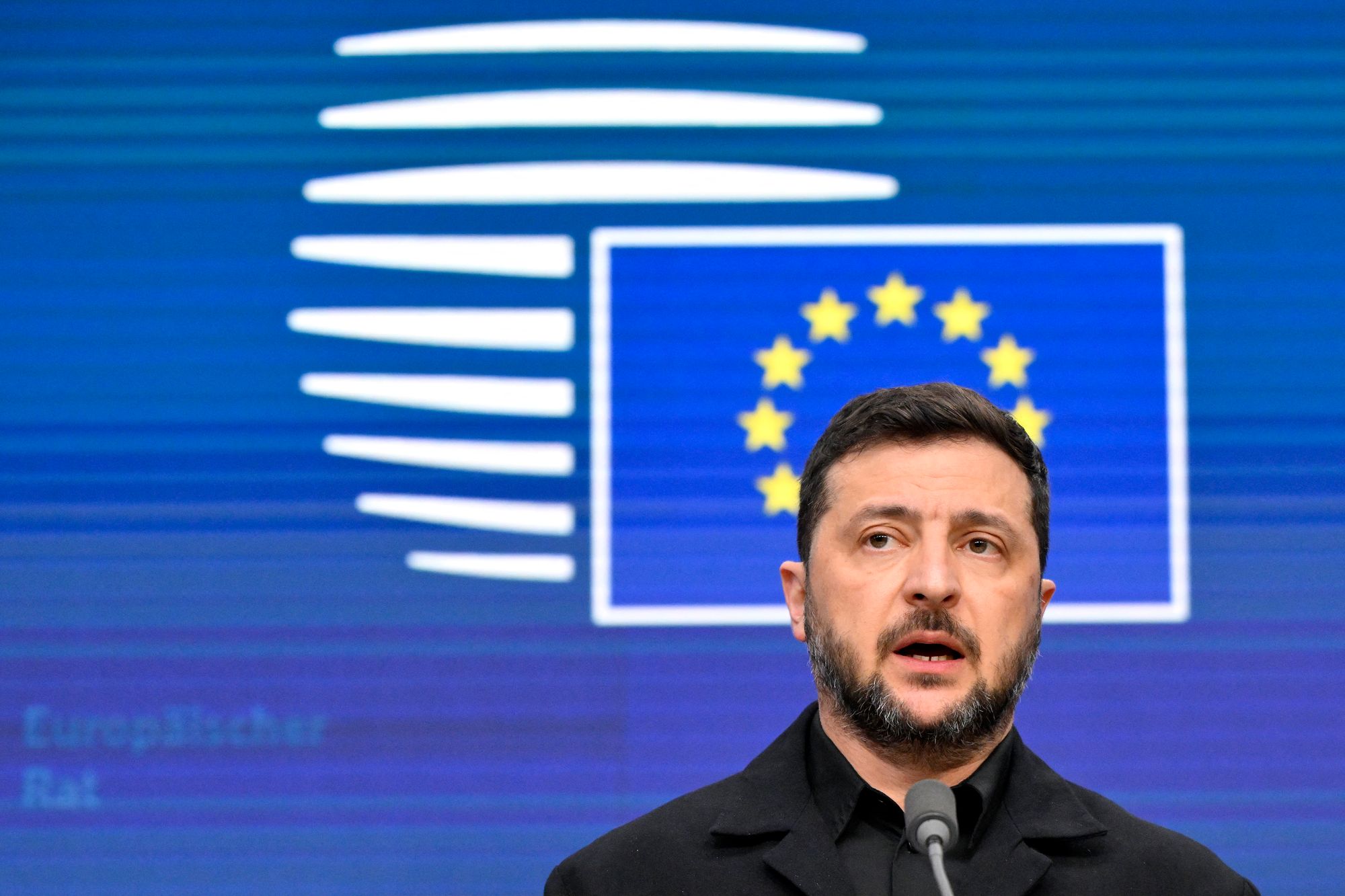Every time I speak with Vladimir, I have good conversations, and then they don’t go anywhere,” said Donald Trump, after his latest peace initiative, this time in Ukraine, once again ran into the mud of Russian obfuscation.
In spite of the warmth shown at the Alaska summit in August, and a history of credulity when it comes to Moscow’s version of events, it sounds like Donald Trump may have finally lost patience with Vladimir Putin. True, he has expressed concern aloud in the past that President Putin is stringing him along, before being mollified by another long telephone conversation with the Kremlin. This time, Putin might have pushed his luck too far.
For a change – and it is potentially a momentous one – instead of indulging Putin, Mr Trump has taken decisive action directly against Russian interests, imposing sanctions on Russia’s largest natural resources giants, Rosneft and Lukoil. This is unalloyed good news for Ukraine and for Europe. It might even prove decisive for the resolution of the war.

Apart from a surge of weapons deliveries, including the long-range Tomahawk missiles that Volodymyr Zelensky practically begged Mr Trump for earlier this week, the easiest way for Ukraine to force Russia to sue for peace in the coming weeks is to destabilise its feeble economy. This is something an increasingly hostile United States, in concert with Europe and other Western nations, can still achieve. Russia’s relatively primitive and surprisingly small economy is vulnerable to collapse because fully half of its GDP is devoted to war production, it suffers badly from inflation and is critically reliant on exports of energy. Without lucrative sales of oil and gas, the war machine cannot carry on supporting Russia’s armed forces.
Is it too much to hope for? It should not be, if Mr Trump holds his nerve and doesn’t succumb to blandishments from Moscow. It has been obvious for months that Russia is not prepared to accept Mr Trump’s proposal to freeze the conflict on existing battle lines and to have “everyone go home”. That would not suit Putin, whose forces are making glacially slow but steady progress on the ground. He plainly calculates that the Russian “meat grinder” and the bombing of Ukrainian civilians will eventually allow him to prevail before he runs out of money. The job of the West is to ensure that doesn’t happen.
Russia is going bust, as it has been for some time. If Mr Trump is going to use American economic leverage as a weapon to accelerate that process, then that will surely bring the Russians to the table at last, and greatly strengthen Ukraine’s negotiating position. From there, a genuine process can begin to find a political solution to the war, and guarantee the security of Ukraine and Europe.
As a plan and a way to get the war finished, an increased tightening of the sanctions against the Putin regime makes eminent sense. However, it does require, as President Trump has reasonably requested, that EU nations stop buying Russian oil and gas. The two main customers are Hungary and Slovakia, which also happen to be the most sympathetic to the Kremlin. They must be corralled by the other EU members, and indeed now the White House, into finally weaning themselves off Russian hydrocarbons. The Europeans should also seize more Russian financial assets to finance Ukrainian arms supplies and to further pressure Putin to give up his imperial ambitions.
The other vital factor is how far China and India will go in undercutting those sanctions by putting their own export earnings first and doing business with Russia. In recent months, President Trump has sometimes shown a willingness to punish them for defying his will, but both are now substantial enough world powers to be able to resist such pressures. The nightmare for the US and the West would be if the Chinese, Russians, North Koreans and Iranians, plus some smaller satellites such as Venezuela, form a modern “axis of evil”, with their interests diametrically opposed to the Western powers – in effect a new Cold War.
This cannot be allowed to come to pass. It will require all the Western powers, including America, to exhaust Russia economically and financially, and flood the battlefields with the most advanced of weaponry, which Russia and its partners cannot match, and missile systems to degrade Russian military capability.
By the fourth anniversary of Putin’s “special military operation”, which was designed to secure victory within three weeks, a clear Russian defeat could be secured, with all that might follow for a post-Putin regime. “Peace through strength” is Mr Trump’s motto. We shall see if he lives up to it at last.







